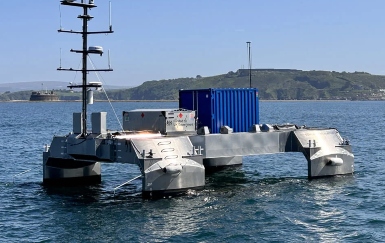
The hydrogen-powered Pioneer, a remotely operated and unmanned vessel (ROUV), has received the UK’s first certification under Workboat Code 3 ahead of its upcoming trials. Lloyd’s Register (LR), which issued the certification under authorisation from the Maritime and Coastguard Agency, reports it represents a significant development in the evolution of regulatory pathways for uncrewed and autonomous vessels operating in UK waters.
“This certification represents a major step forward – not just for ACUA Ocean or LR, Continue reading “UK’s First ROUV certified ahead of trials”










